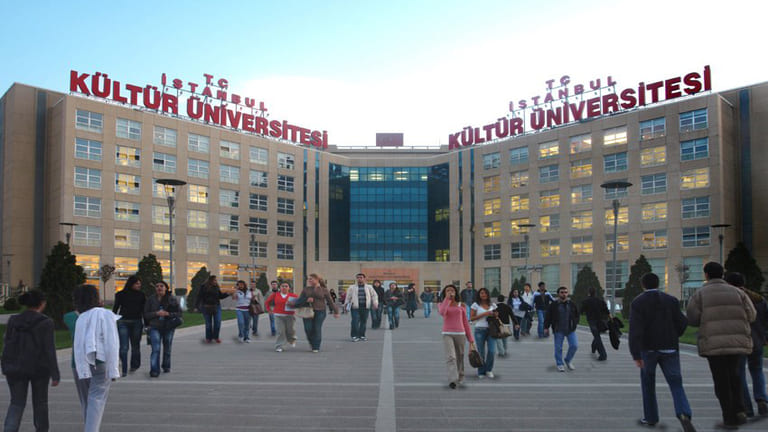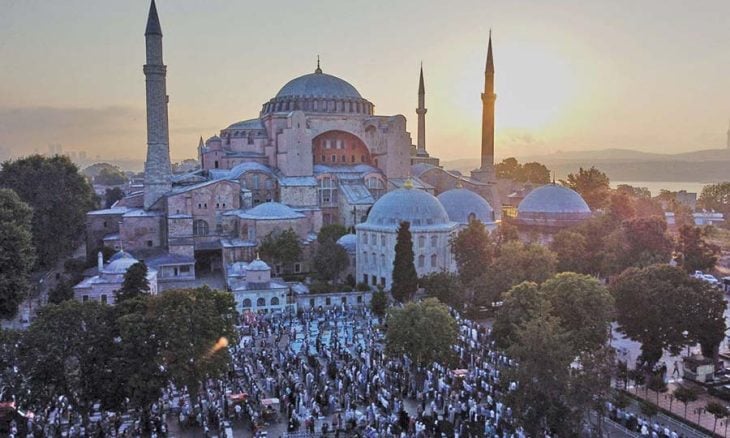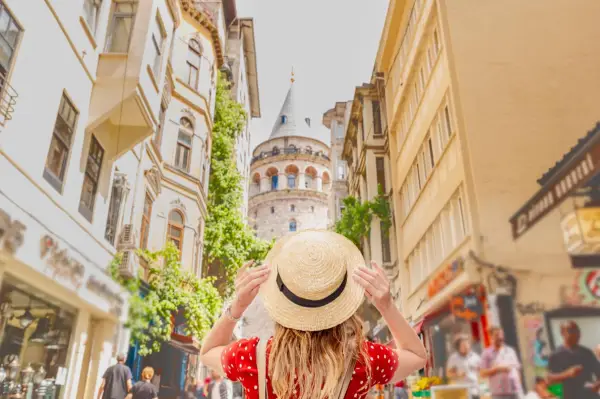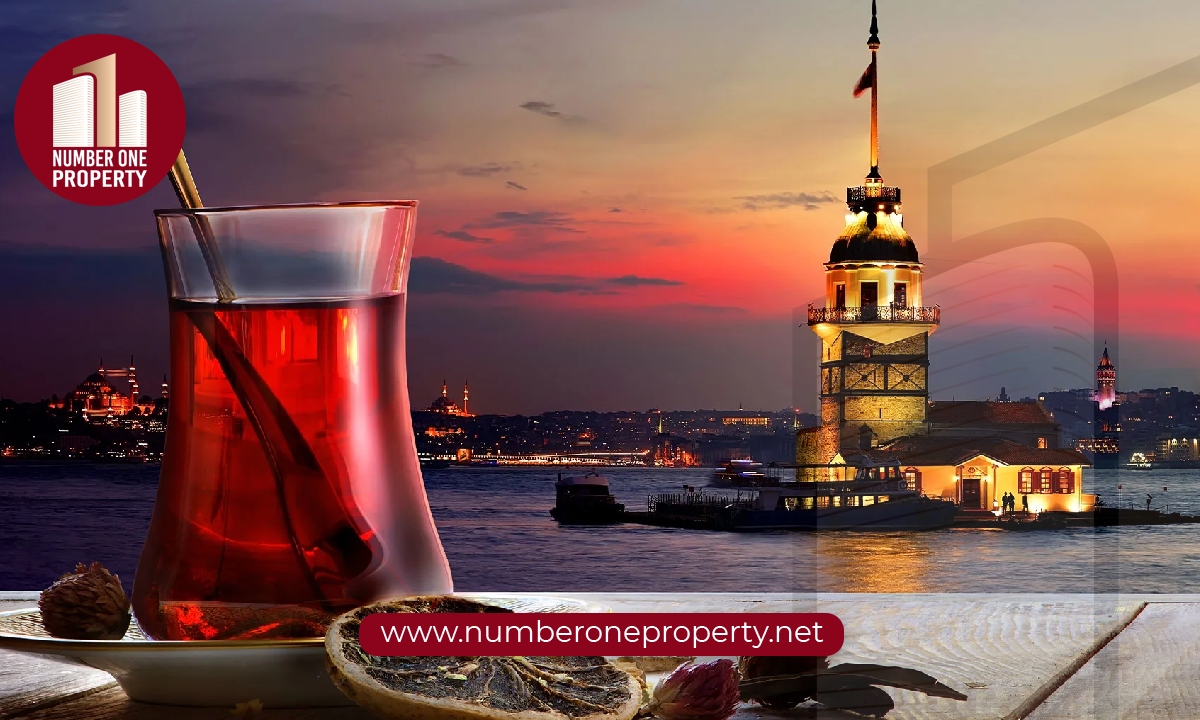We continue with you in the third section of the important information that we provide you with about Turkey. In this section, we will focus on valuable information about tourism and medical tourism, education and universities, religion and religious diversity, then delve into daily life and lifestyle and conclude with Turkey's future and challenges.
Tourism and the most important tourist attractions in Turkey

The most prominent tourist destinations in Turkey: Istanbul, Antalya, and Cappadocia
Istanbul: Istanbul is considered one of the most prominent tourist destinations in Turkey, as it is distinguished by its ancient history that extends through the Byzantine and Ottoman eras. Among its most famous landmarks is the Hagia Sophia, which was a church and then turned into a museum, and recently into a mosque, reflecting the cultural and religious diversity of the city. Topkapi Palace is one of the most important monuments that highlight the Ottoman royal life. There is also the Sultan Ahmed Mosque (Blue Mosque), and the Bosphorus Bridge that connects the continents of Asia and Europe. Visitors can also enjoy shopping in the Grand Bazaar, which is one of the oldest markets in the world.
Antalya: Located on the southern coast of Turkey, Antalya is a prime destination for beach and nature lovers, with stunning beaches such as Konyaalti Beach and Lara Beach. The city is known for its Roman ruins such as Hadrian's Gate, and is one of the best destinations for water sports enthusiasts. Antalya offers a unique experience that combines stunning coastal nature with historical monuments dating back thousands of years.
Cappadocia: Cappadocia is famous for its unique terrain and amazing rock formations known as fairy chimneys. Cappadocia is an ideal place for adventure lovers, as visitors can explore the city by riding hot air balloons to see the enchanting scene from above. Cappadocia contains underground cities and archaeological sites, making it a tourist destination that combines adventure and history.
Natural tourism: coasts, Pamukkale springs, and the Black Sea Mountains
Coasts: Turkey has beautiful coasts that extend along the Mediterranean and Aegean Seas, and is an ideal destination for recreation and beach lovers. Among the wonderful beaches, we find Oludeniz Beach in Fethiye, a beach characterized by its clear blue waters. Coastal cities such as Marmaris and Bodrum are also world famous, where visitors can enjoy water sports such as diving and surfing.
Pamukkale Springs: Pamukkale springs are considered one of the natural wonders of Turkey, where hot water rich in minerals flows to form white limestone terraces that resemble cotton, which is why it is known as the "cotton castle". Pamukkale attracts visitors from all over the world who come to enjoy swimming in the hot waters and use them for natural therapy.
Black Sea Mountains: The Black Sea region offers amazing natural scenery, with green mountains and dense forests covering the region. Cities such as Trabzon and Rize are famous for their natural beauty, and Mount Cakir is a special place for hiking and mountain climbing enthusiasts. Uzungol is known for its charming mountain lake located in the heart of picturesque nature, making it an ideal destination for relaxation and enjoying the scenery.
Medical Tourism in Turkey
Turkey has become a popular destination for medical tourism, with hospitals and clinics offering high-quality medical services at reasonable costs compared to many European countries. Many visitors head to Turkey for procedures such as hair transplantation, cosmetic surgery, and dental treatment, in addition to other medical treatments.
Hospitals in Turkey provide health services with the latest medical technologies and adhere to international standards, which has made them attract patients from different countries. Some hospitals provide translation services for international patients and health guides to assist them during the treatment period.
The hot baths and therapeutic springs spread across Turkey are part of medical tourism, as these places provide natural treatment for joint pain and skin diseases. One of the most famous areas that provide these services is the Pamukkale springs, which help its visitors relax and benefit from the properties of the therapeutic waters.
Tourism in Turkey represents a unique blend of history, culture, and nature, where visitors find a great diversity in destinations and activities. From historical landmarks to beautiful coasts, and from hot springs to modern therapeutic services, Turkey is a comprehensive destination that meets the needs of tourists of various interests.
Education and the educational system in Turkey

The education system in Turkey and the most important universities and research centers
The education system in Turkey follows an organized structure that includes primary, middle and secondary education, and education is compulsory until the age of 18. The system focuses on developing students' academic and life skills through modern curricula, and includes public and private education, in addition to international schools spread in major cities.
Turkey is home to many prestigious universities that offer advanced educational programs in various fields. Among the famous Turkish universities are:
Istanbul University: It is considered one of the oldest and largest universities in Turkey, and offers various study programs in medicine, engineering, social sciences, and literature.
Bogazici University (Bosphorus): It is distinguished by offering programs in English, and is one of the best universities that attract international students.
Middle East Technical University (ODTÜ): Located in Ankara, it is one of the leading universities in the field of technology and engineering, and includes an advanced research center.
Hacettepe University: Known for its programs in medical sciences, it is an academic and research reference in Turkey.
Turkish universities are distinguished by the presence of advanced research centers that work to develop research in various fields such as engineering, medicine, social sciences, and agriculture, as the state encourages universities to innovate and contribute to achieving development goals.
Cultural exchange programs and scholarships for international students
Turkey offers a number of cultural exchange programs that allow international students to learn about Turkish culture and learn the Turkish language. The Erasmus program is one of the famous programs that contribute to the exchange of students between Turkey and European countries, allowing students to have a distinguished educational experience in a multicultural environment.
Turkish Scholarships provide great opportunities for international students wishing to pursue their undergraduate and graduate education in Turkey. These scholarships cover tuition fees, accommodation costs, health care, and sometimes even Turkish language lessons. Turkish scholarships are offered to students from all over the world and cover a wide range of academic disciplines.
Through these programs, Turkey aims to promote cultural diversity, providing international students with the opportunity to visit the country and learn about its culture, which contributes to spreading the culture of understanding and communication between peoples.
The development of education and Turkey's orientation to attract students from abroad
Turkey is constantly developing its education system to keep pace with global changes and attract more foreign students. The Turkish government has implemented a set of educational reforms aimed at improving the quality of higher education, with a focus on offering programs in English at major universities to increase the number of international students.
Turkey seeks to be an important educational destination in the region, especially for students from Asia, Africa and the Middle East, which contributes to strengthening its cultural and diplomatic relations with these countries.
Turkey has launched many initiatives to attract international students, as it works to provide a comfortable and comprehensive educational environment that includes academic and social support. Turkish universities provide special support centers for foreign students, including academic guidance, Turkish language courses, as well as social and cultural activities that help them integrate into society.
Turkish universities are witnessing a great development in the field of scientific research and technology, which attracts many international researchers and students looking for distinguished education in a safe and diverse environment. Through these steps, Turkey aspires to become a regional and global center for higher education, and a place that attracts students from all over the world.
It appears that the education system in Turkey is moving steadily towards development and sustainability, as Turkey combines authenticity and modernity, and seeks to provide a high-quality educational environment that is in line with global education standards.
The focus on education and scientific research helps enhance Turkey's position as a prominent educational destination that meets the needs of local and international students, and opens new horizons for cultural and academic cooperation with countries around the world.
Religion and Religious Diversity in Turkey

Islam as the Official and Most Prevalent Religion and Its Impact on Daily Life
Islam is the most prevalent religion in Turkey, with Muslims making up the vast majority of the population. According to the Turkish Constitution, Turkey is a secular state, meaning that it does not have an official religion, but Islamic culture greatly influences Turkish society and daily life.
The influence of Islam extends to many aspects of daily life in Turkey; for example, prayer times begin with the call to prayer from mosques in every neighborhood and city, and the month of Ramadan is an important religious occasion, during which people fast from dawn to dusk, and the end of the month is celebrated with Eid al-Fitr, which is a national holiday.
A custom associated with Islam is regular visits to mosques for prayer, such as the Sultan Ahmed Mosque and Hagia Sophia in Istanbul. Islamic values, such as respect and generosity, are part of general behavior, and this is demonstrated by Turkish hospitality and appreciation of guests.
Religious Diversity and the Presence of Other Religious Groups, Such as Christians and Jews
Despite its Muslim majority, Turkey is home to diverse religious groups, including Christians and Jews, who have a long history in the country and have lived there for centuries. The presence of Christians in Turkey dates back to the Byzantine Empire, and today there are several Christian denominations, such as Orthodox, Catholic, and Protestant, with historic churches in Istanbul, Izmir, and other cities.
Turkey also has a small Jewish community, most of whom are concentrated in Istanbul. The presence of Jews in Turkey dates back to the 15th century, when the Ottoman Empire provided refuge for Jews expelled from Spain. There are still synagogues, such as the Neve Shalom Synagogue in Istanbul.
In addition to Muslims, Christians, and Jews, there are also members of the Alevi sect, which is part of the Islamic community but differs in its practices and rituals. Religious diversity is one of the factors that contribute to the richness and diversity of Turkish culture.
The role of the state in ensuring freedom of worship and interfaith coexistence
The Turkish Constitution guarantees freedom of religion and belief, and obliges the state to protect the right of individuals to practice their religious rituals. Although Turkish society is Islamic in nature, the state has followed a policy of secularism since the founding of the Turkish Republic by Mustafa Kemal Ataturk in 1923. This secularism allows for freedom of worship and maintains the state’s neutrality towards all religions.
The Turkish government provides support to many places of worship, including mosques, churches, and synagogues, and is concerned with their maintenance and preservation as part of the cultural heritage. The government also works to promote interfaith dialogue through institutions such as the “Religious Relations Council,” which aims to promote cooperation and understanding between different sects.
Turkey also provides optional religious education in public schools, where students can choose courses that suit their beliefs. With the increase in religious tourism to Turkey, the government is working to provide facilities for visiting the holy sites of all religions, reflecting the state’s commitment to interfaith coexistence and supporting visitors from different backgrounds.
Religious diversity in Turkey is evident in daily life, where mutual respect prevails among religions, promoting harmony and peaceful coexistence. Turkey is an example of how a religiously diverse society can be managed with a culture that respects all beliefs, balancing secularism and religious values.
Daily Life and Lifestyle in Turkey

Life in Big Cities vs. Rural Areas
Turkey is characterized by a great diversity in lifestyle between big cities and rural areas. In big cities such as Istanbul, Ankara and Izmir, a modern lifestyle prevails where all modern services and facilities are available, and life is fast and active; you find skyscrapers, large shopping malls, and luxury hotels. These cities are a center for attracting young people looking for job and education opportunities, in addition to attracting tourists from all over the world.
As for rural areas, such as the Black Sea and Anatolian villages, the lifestyle is more calm and traditional, as the population depends mainly on agriculture and animal husbandry. These areas are dominated by stone or wooden houses, and the population lives a simple life linked to customs and traditions. These areas provide a lifestyle characterized by social solidarity, where people show strong solidarity and cooperation, and depend on each other more than life in big cities.
Lifestyle Diversity Between Traditional and Modern
The lifestyle in Turkey is an interesting balance between ancient traditions and modern developments, as Turkish society moves towards modernity, while preserving cultural and religious values. In the big cities, it is common to see young people wearing modern clothes and following the latest fashion trends, but this modernity naturally intersects with tradition, as Turks maintain the values of family respect and hospitality, which are part of the social identity.
On the other hand, rural areas display a more traditional lifestyle, where women wear the traditional Turkish dress known as “Pashma” and cover their heads, and men tend to wear practical clothes that suit the nature of rural work. The bond between generations and respect for elders are important values in these societies, and this balance leads to a rich diversity in Turkish society.
Cost of living and level of services
The cost of living in Turkey is relatively moderate compared to many European countries, but it varies between big cities and rural areas. For example, the cost of rent, food and transportation in Istanbul is the highest in Turkey, followed by Ankara and Izmir. The cost of living in Istanbul is about twice that of rural areas, where prices are lower, and there is a demand for modern services.
The level of services also varies; major cities have advanced infrastructure, such as modern transportation (metro, tram), and advanced health and educational facilities. In rural areas, services may be less developed, but the Turkish government is working to improve the level of services in these areas to ensure a good standard of living for its residents, and is launching projects aimed at promoting rural development.
The importance of family and social relations
The family is the cornerstone of Turkish society, where family members are linked by strong and solid relationships. Many young people live in the family home even after marriage, and participate in caring for the elderly.
Turkish society is characterized by strong social communication, where friends and families meet regularly to exchange conversations and drink the famous Turkish tea and coffee. Respect and appreciation for neighbors is a prominent feature, and they often cooperate on occasions and holidays and participate in social activities, which enhances social cohesion.
There are many social and religious occasions that strengthen this connection, such as Eid al-Adha and Eid al-Fitr, where people visit each other and exchange gifts and traditional sweets. Such occasions are an opportunity to strengthen family and social ties.
In Turkey, modernity blends with tradition in daily life, creating a unique cultural diversity that extends across Turkish regions and cities, leading to a disparity between urban and rural areas, but giving Turkish society a special identity that distinguishes it from other countries.
Turkey's Future and Challenges
The Challenges Facing Turkey Today
Political Issues: Turkey faces complex political challenges, most notably issues related to the existence of opposing parties and differences in visions between political movements. The situation in the Middle East also affects its foreign policies, which may put the government under pressure to find compromises in line with its domestic and foreign goals.
Economic Issues: Turkey has been suffering from economic fluctuations in recent years, including the decline in the value of the Turkish lira and high inflation rates, which has affected citizens' purchasing power. Unemployment is also a challenge, especially among young people, many of whom are looking for stable job opportunities. Turkey relies heavily on foreign investment to support its economy, making it vulnerable to the effects of global economic changes.
Security Challenges: Turkey faces security challenges on its borders, especially with Syria and Iraq, as it deals with terrorist threats and infiltration attempts. The issue of Syrian refugees also puts additional pressure on infrastructure and social services, especially in major cities such as Istanbul and Ankara.
Future Opportunities and Development Plans
Turkey seeks to achieve promising goals and a future vision, which includes ambitious goals such as achieving a strong and sustainable economy, achieving self-sufficiency in energy, enhancing education, and the defense industry. Turkey also seeks to make Istanbul one of the largest financial centers in the world by establishing projects such as the new Istanbul Airport and the new financial center.
Investing in technology and innovation: Turkey seeks to strengthen its position in technology by supporting startups and innovation. The government has launched several initiatives to promote technological entrepreneurship in areas such as artificial intelligence, information technology, and defense industries. Turkey is an attractive regional center for investment in these areas thanks to its geographical location and young workforce.
Expanding renewable energy: Turkey is working to exploit its potential in the field of renewable energy, as it plans to increase its production of solar and wind energy to reduce its dependence on energy imports. Turkey can thus achieve a competitive advantage, as it reduces its energy import bill and contributes to protecting the environment.
International Relations and Turkey's Role in Regional and Global Issues
An Effective Regional Role: Turkey is a major player in the Middle East, playing a pivotal role in regional issues such as the Syrian crisis, the conflict in Libya, and relations with the Gulf States. Turkey has a strong army and the largest defense industrial base in the region, giving it strong influence regionally.
A NATO Member: Turkey is a member of the North Atlantic Treaty Organization (NATO), and has a strategic role in confronting the security challenges affecting Europe and the region. Turkey seeks to maintain strong relations with the West, while achieving a balance in relations with Russia and Asian countries, as it relies on this balance to achieve its security and economic interests.
Extensive Trade Relations: Turkey pursues a policy of economic expansion by strengthening its trade relations with Europe, Asia, and Africa. The Customs Union Agreement with the European Union is one of the most important economic agreements that Turkey benefits from, and it also seeks to expand its trade with China and Arab countries to improve its economy. Turkey's trade relations with African countries also contribute to supporting its diplomatic influence.
Turkey seeks to achieve ambitious goals in the future, but it faces major challenges that require continuous planning and the adoption of effective strategies. Türkiye's future depends on its ability to manage the balance between political, economic and security issues, and to strengthen its position as a pivotal state in the region and the world.
Conclusion
In the previous lines we have provided important information about Turkey, we hope that it will be enjoyable and beneficial for you and help you learn more about this beautiful and hospitable country that welcomes everyone.
Whatever the reason that prompted you to read this article and the previous articles and reach this point, we hope that you achieve your goal, whether it is real estate investment, housing, tourism and visiting, or just learning more about Türkiye.
Read Also:
Information about Türkiye 1 - Amazing Facts
Information about Türkiye 2 - Topography and History, Administration, Economy and Culture


